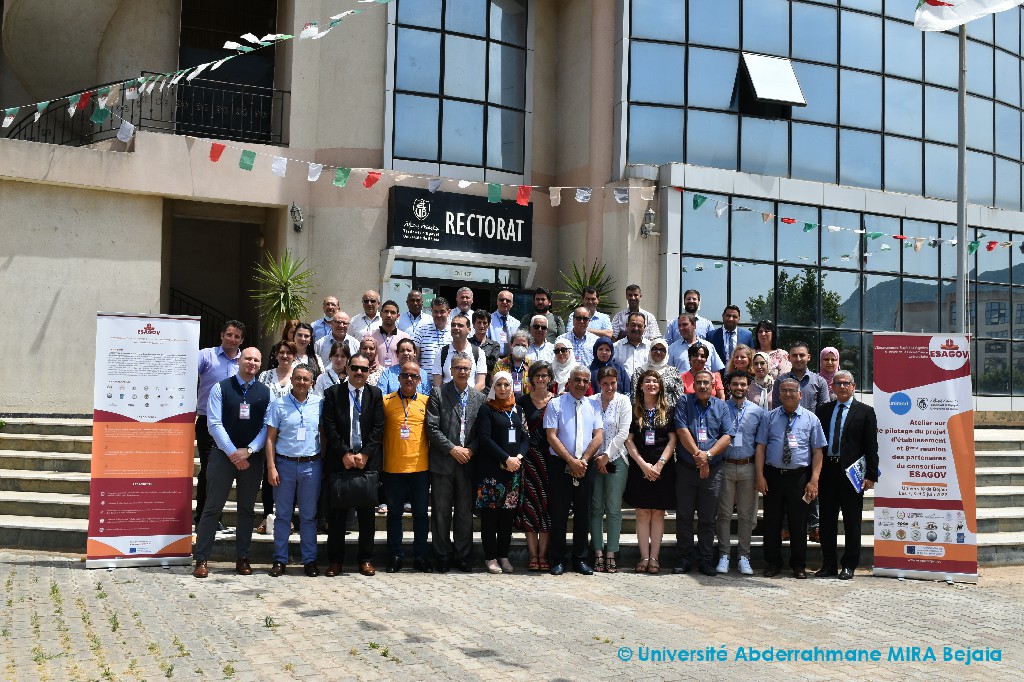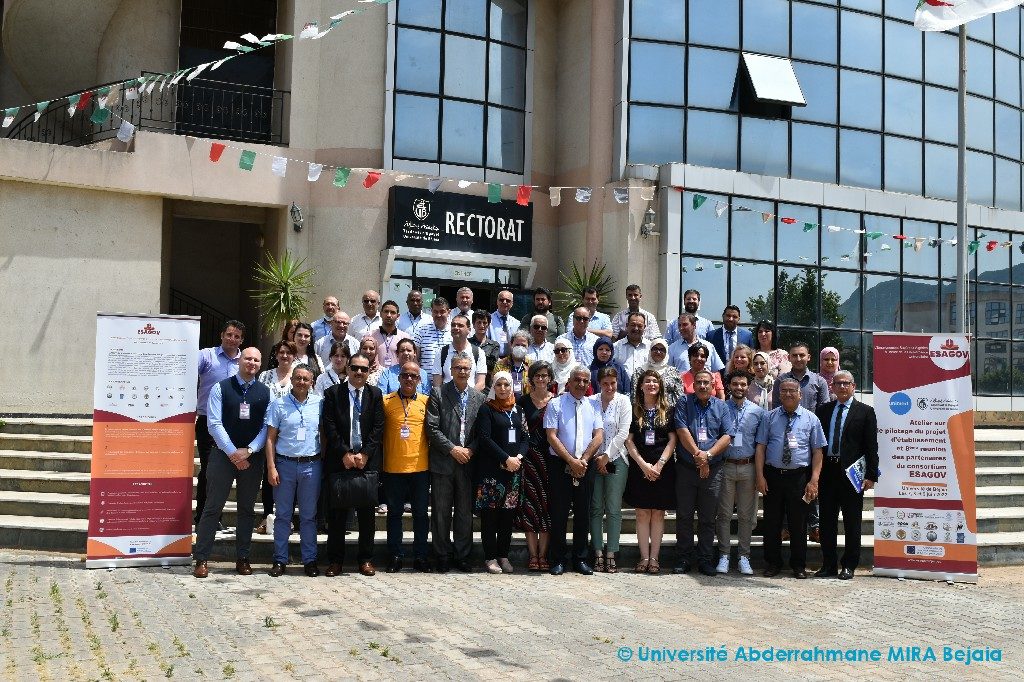
After two years of online meetings and long-distance work, ESAGOV’s partners finally got together from June 7th to 9th at the University of Béjaia.
The meeting was organized around 2 key events: the workshop on steering the revision of the establishment project and the 8th partners’ meeting. The attendance of the Rectors of Béjaia, Skikda and Tizi Ouzou, as well as representatives of the French Ministry of Further Beyond the human significance of this reunion, these meetings were an important moment in the project’s life.
The steering workshop was an opportunity for the Algerian partners to present their situation regarding the implementation of their action plan for the revision of the establishment’s project, and to share the tools they have used and the steps they have taken, as well as their strengths and weaknesses. This round-table discussion enabled us to demonstrate the dynamism of our partners, despite the difficulties, and to set in motion a common dynamic for the finalization of this process. During the workshop, two vice-presidents from the University of Rouen-Normandie, Mr. Yon and Mr. Dargent, shared their university’s experience of management dialogue and the integration of international strategy into the university’s strategic plan. The workshop was also attended by two speakers from outside the project: Mr. Bontems, in charge of steering at UMR PACTE, presented a risk assessment tool, and Ms. Florentz, vice-president of the University of Strasbourg and a member of UNIMED, shared her university’s experience of self-evaluation and strategic action documents. Discussions were, as always, rich and fruitful.
The steering workshop agenda is available here.
The partners’ meeting in Béjaïa was the first in Algeria since the beginning of the projects, and it will be the last face-to-face meeting before the end of the project. All partners attended the meeting, as did Mr. Boudour, Erasmus national coordinator, and Mr. Wynants, EACEA project officer. The meeting was an opportunity to take stock of the project’s implementation since its launch, and to define a roadmap for the last 7 projects. Discussions focused on the organization of study visits to Europe, future dissemination activities and the preparation of a sustainability plan. The recommendations made by Mr. Khelif, the project’s external evaluator, provided support and encouragement for the partners in the final months of the project.
The partners’ meeting agenda is available here.

